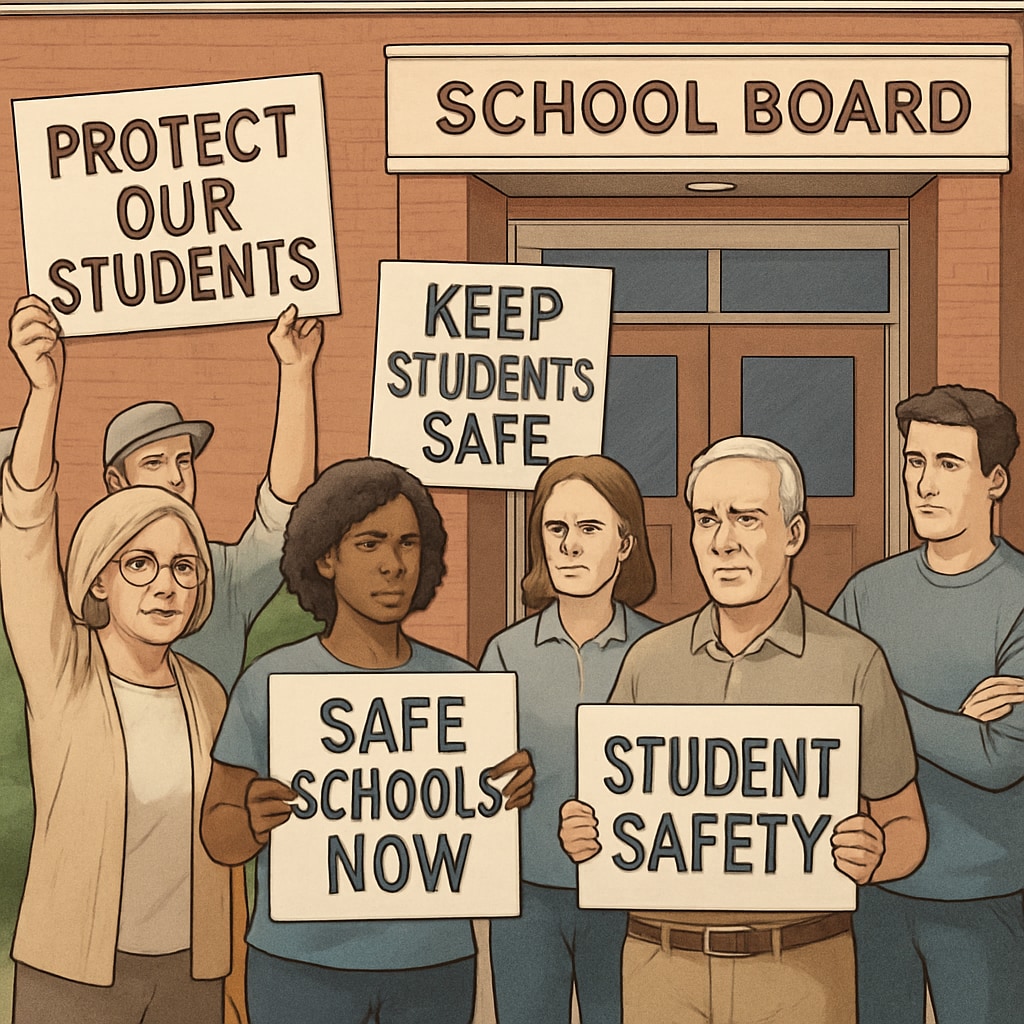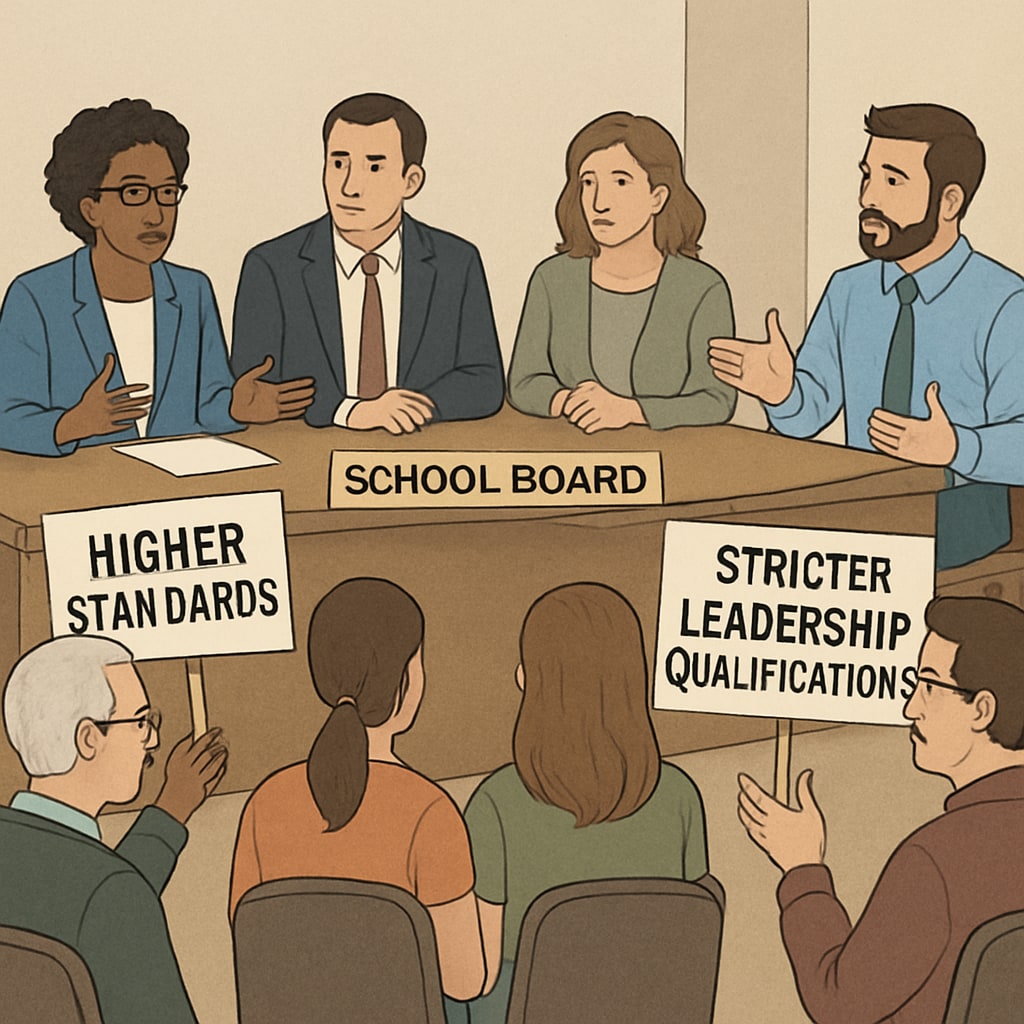Recent protests in a small Maine town have brought the issue of leadership vetting to the forefront, as residents rallied against the appointment of an individual with a history of violent crime to the school board. This controversy has highlighted critical concerns surrounding school board governance, student safety, and community involvement. The incident underscores the importance of maintaining ethical standards for school leadership while respecting legal frameworks. As schools increasingly face scrutiny over safety protocols, this case has fueled debates on how to balance student protection with the principles of rehabilitation and inclusion.
School Leadership Ethics: Why Background Checks Matter
School boards play a pivotal role in shaping the policies and environment for students’ education. Their decisions directly impact not only academic outcomes but also the overall safety and well-being of children. As such, the qualifications and ethical standing of board members are of utmost importance. In this Maine case, community members voiced concerns about the suitability of an individual with a violent criminal record, raising questions about whether current vetting processes are sufficient.
Background checks are a fundamental tool in ensuring that individuals in leadership positions are equipped to act in the best interest of those they serve. However, critics argue that these systems are not always stringent enough. For instance, while many schools conduct checks for teachers and staff, board members are often held to different or less rigorous standards. This discrepancy can lead to scenarios where individuals with potentially concerning histories are allowed to influence school policy.

Community Oversight and the Right to Protest
Community engagement is a cornerstone of democratic governance, and schools are no exception. When residents feel that their concerns are not being addressed, public protests can be a powerful tool for change. In the Maine case, community members organized rallies, attended board meetings, and used social media platforms to voice their opposition. Their actions demonstrate the role of collective advocacy in holding decision-makers accountable.
Protests like these also highlight the tension between legal rights and public opinion. While the individual in question may have fulfilled the legal requirements to serve on the board, the community’s backlash indicates a broader concern about moral and ethical fitness for such roles. Striking a balance between respecting legal rehabilitation and ensuring public confidence in school governance is a complex but necessary challenge.

Proposed Reforms: Balancing Safety and Rehabilitation
To address these issues, experts suggest reforms that can both safeguard students and respect the legal rights of individuals who have served their time. Here are some potential steps:
- Standardized Vetting Processes: Implementing uniform background checks for all school board members, similar to those required for teachers and staff.
- Transparency in Appointments: Ensuring that the community is informed about the qualifications and histories of board candidates before appointments are finalized.
- Ethics Committees: Establishing independent committees to review and assess the suitability of individuals for leadership roles.
- Rehabilitation Programs: Recognizing the importance of second chances, but aligning this with roles that directly impact vulnerable populations like children.
By adopting these measures, schools can create a system that prioritizes student safety while maintaining fairness and inclusivity. For example, organizations like the National School Boards Association (NSBA) and state education departments could take the lead in developing comprehensive guidelines for leadership vetting.
The Broader Implications for School Governance
This debate is not just about one Maine town—it reflects a nationwide conversation about the standards we set for those in positions of power within educational institutions. The intersection of public safety, legal rehabilitation, and community trust is a delicate one, but it is critical to address. Schools are not only places of learning but also spaces where children should feel safe and supported.
As this case continues to unfold, it serves as a reminder that governance is a shared responsibility. Communities, policymakers, and educational institutions must work together to ensure that leadership roles are filled by individuals who uphold the highest ethical standards. In doing so, we can create environments where both students and parents feel confident in the integrity of those making decisions on their behalf.
Ultimately, the goal is to foster a system where safety and accountability go hand in hand, ensuring that schools remain a secure and nurturing space for all children. This requires ongoing dialogue, transparent processes, and a commitment to balancing competing interests in a way that serves the greater good.
Readability guidance: Short paragraphs and bullet points make the article accessible. The use of transitional phrases ensures a smooth flow between ideas, while external links provide additional context for readers seeking further information.


